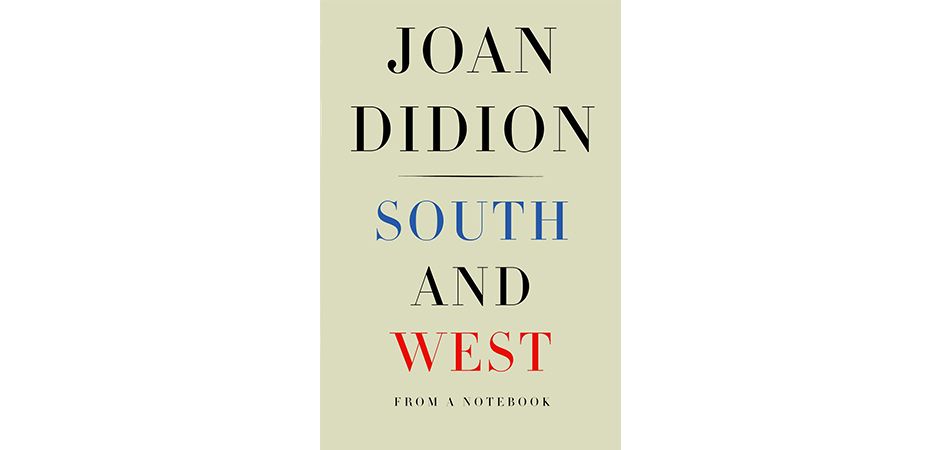Off the page: ‘South and West’

A warning sign: “No Hunting of Quadrupeds.” A stark Biloxi lighthouse. Pit vipers and sycamores. A New Orleans pulled from forbidding fairy tales, where “all the king’s men would turn on the king” in a city “dominated by wilderness.” Among these, the impressions captured by famed author Joan Didion of her monthlong travels along the rural Gulf Coast in 1970 employ the same critical eye she has come to be known for, but with an untraditional format that perhaps best suits this departure from her usual work. Published as excerpts of notes and observations jotted down during her journey—embarked upon from her home in Los Angeles—South and West takes root in an attitude that seems at once troubled and curious, and not altogether unfamiliar to contemporary audiences, Southern or not.
Didion reserves only the last handful of pages for her travels in California, and the rest—in Louisiana, Mississippi and Alabama—aren’t necessarily glowing reviews. Although Didion has more or less dug into the dirtier aspects of rural Southern life, at one point literally falling into the mud outside a reptile farm, her perspective remains, in contrast, somewhat sanitary and pervasive with unease. Like her view of an stylish African American student on the campus of Ole Miss—“I could not think what she was doing at Ole Miss, or what she thought about it”—or her damning remarks about its university bookstore—“which appeared to be the one place in Oxford to buy a book”—Didion’s musings often fall just short of investigation, perhaps still half-asleep or wary under what she describes as nearly a spell of the South, “the idea of wilderness not as an escape from civilization and its discontents but as a mortal threat to a community precarious and colonial in its deepest respect.”
Flawed as it may be, both then and now, the South still gives up a few surprising gems to Didion’s pen. Like her account of Mel Bouldin, who attended medical school after the birth of her children to practice as an OB-GYN among three male doctors. Or amusing encounters with people like Mrs. Evans who smuggle illegal liquor through dry counties in purses bought specifically for that purpose.
An incomplete viewpoint, perhaps, from someone so admired for her critiques of culture and morality. But Didion’s distance plays a special role here—an invite for readers to look closer, make comparisons and hone their identities in what must surely be one of the most distinct regions in modern times.












